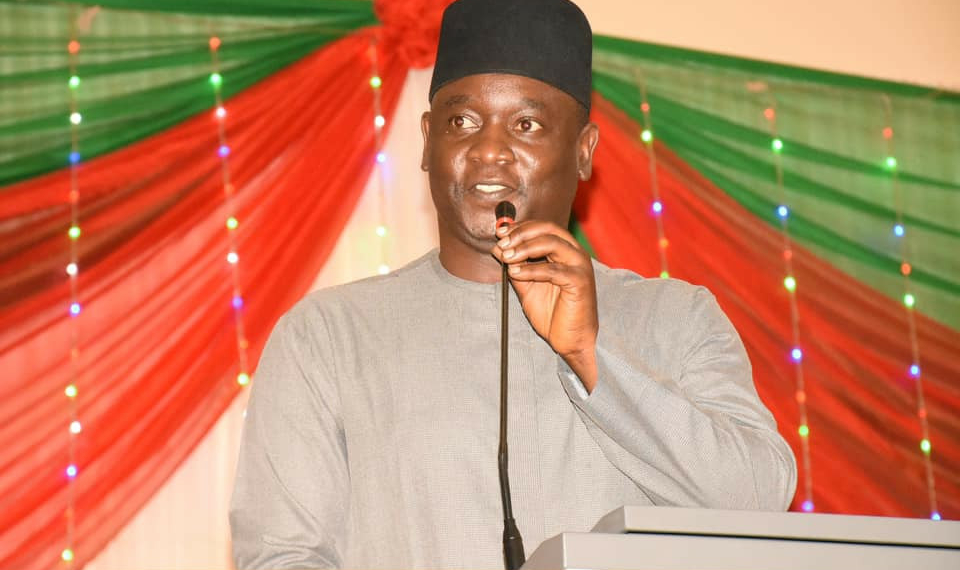Mr Samuel Aruwan, Kaduna Commissioner for Internal Security and Home Affairs, has tasked journalists in the state on ethical reportage of security and other sensitive issues to ensure peace building.
Aruwan gave the charge on Tuesday in Kaduna while speaking at a seminar and award organised by the Nigeria Union of Journalists (NUJ) Correspondents Chapel, KadunaKaduna Deputy Chief of Staff wants political leaders to mentor youths chapter.
The Commissioner lamented that Kaduna State had been confronted by the monsters of banditry and terrorism on a daily basis but assured of ultimate victory against the adversaries.
The theme of the seminar is ‘Tackling Security Challenges; The Role of The Media.’
According to Aruwan, as professional journalists, the ability to see clearly the role that responsible and ethical journalism could play towards peace building efforts in the society should be upheld and practiced with all sense of responsibility.
He noted that information is power, and an individual’s power to act is limited to the information to which he/she is exposed.
The Commissioner also noted that the impact of perception on public discourse is huge, and thus shaped by the media.
“The power of the media is like two sides of the same coin. On one hand, an independent and pluralistic media provides a platform for healthy debate and sharing of opinions, and on the other, the media can be grossly misused and abused for the purposes of propaganda, to incite hatred, spread rumours and divisive narratives and therefore create tensions.
“It has become even more pervasive in recent times with technologies like the internet, social media and instant messaging,” he said.
The Commissioner also lamented the ease for vast sections of the public in selling fantastic narratives of ethno-religious conflict as substitutes for the stark reality of banditry, criminality, terrorism, and economic tensions.
“Terrorists and criminals are now given ethnic tags, which only serve as cloaks to further protect them from the glare of truth.
“The crucial task for the media now is creating that balance between protecting freedom of expression and preventing harm caused by unrestrained free speech.
“Finding that balance is very important, especially in a pluralist society like ours, which unfortunately has been charged with vibes of social, political and ethno-religious division.
“We must engage in responsible journalism, and that is journalism which does not simply re-publish press releases, or spread random broadcasts on social media, but is truly concerned with a balanced and truthful account of events,” Aruwan said.
He explained that peace journalists could investigate causes behind conflicts and the true motives of the participants, while making sure to humanize all victims of the conflict.
“Journalists should not exploit losses and sufferings through selective condemnations, but making sure that reporting is balanced, peace journalism should be focused on preventing further escalation of conflict,” he said.
He urged Journalists to eschew judgmental representations by describing reality without exaggeration and sensationalism.
“In the era of the internet, this has become more difficult as every blog and website wants to generate as many clicks as possible. The need for responsibility has extended beyond traditional media into the social media space.
“Social media platforms are charged atmospheres; they can swing positively or negatively, right now, many of us dwell there, it is our domain, we all have voices and we have followers, we influence others and we are influenced by others.
“That means that, to a large extent, we can set the tone, we can create the atmosphere we choose to in this city, in this state and in our country. This power that we have is largely unregulated.
“I believe that at this critical stage of our national development, it is time for the media to unite our people with a shared hope and a shared vision. We can and will become a thriving community that celebrates its diversity as its most compelling reason to come together.
“Journalists must be bold, frank, fearless and take risks but they must anchor these attributes with sincerity, honesty and adhering to facts, devoid of pursuing divisive agendas which are threats to common good,” Aruwan said
He reiterated the state government’s willingness to continue to collaborate with security agencies and engage productively with its citizens to address security challenges across the state.
In his remarks, the Acting Chairman of the Correspondents Chapel, Mr Moses Kolo, said the event was aimed at recognising individuals who made immense contributions to the society.
He noted that Aruwan, who presented a paper on the theme of the event, being a journalist who has been on the field, understood well the seeming challenges Journalists face especially when it bothers on security reportage.
“There is no doubt our State and indeed Nation is going through its most difficult phase, but together, we can win this war.
“As Journalists and watchdogs of the society, let us cooperate with security agencies to douse the fears of the masses and build confidence in the people.
“This is necessary because such reports only give the perpetrators of these dastardly acts undue prominence and a sense of superiority when they are always and in fact on a daily basis making the headlines,” Kolo said.
He urged journalists in the state and Nigeria in general to as much as possible de-escalate unconfirmed reports especially on attacks and other forms of insurgency.

















Discussion about this post